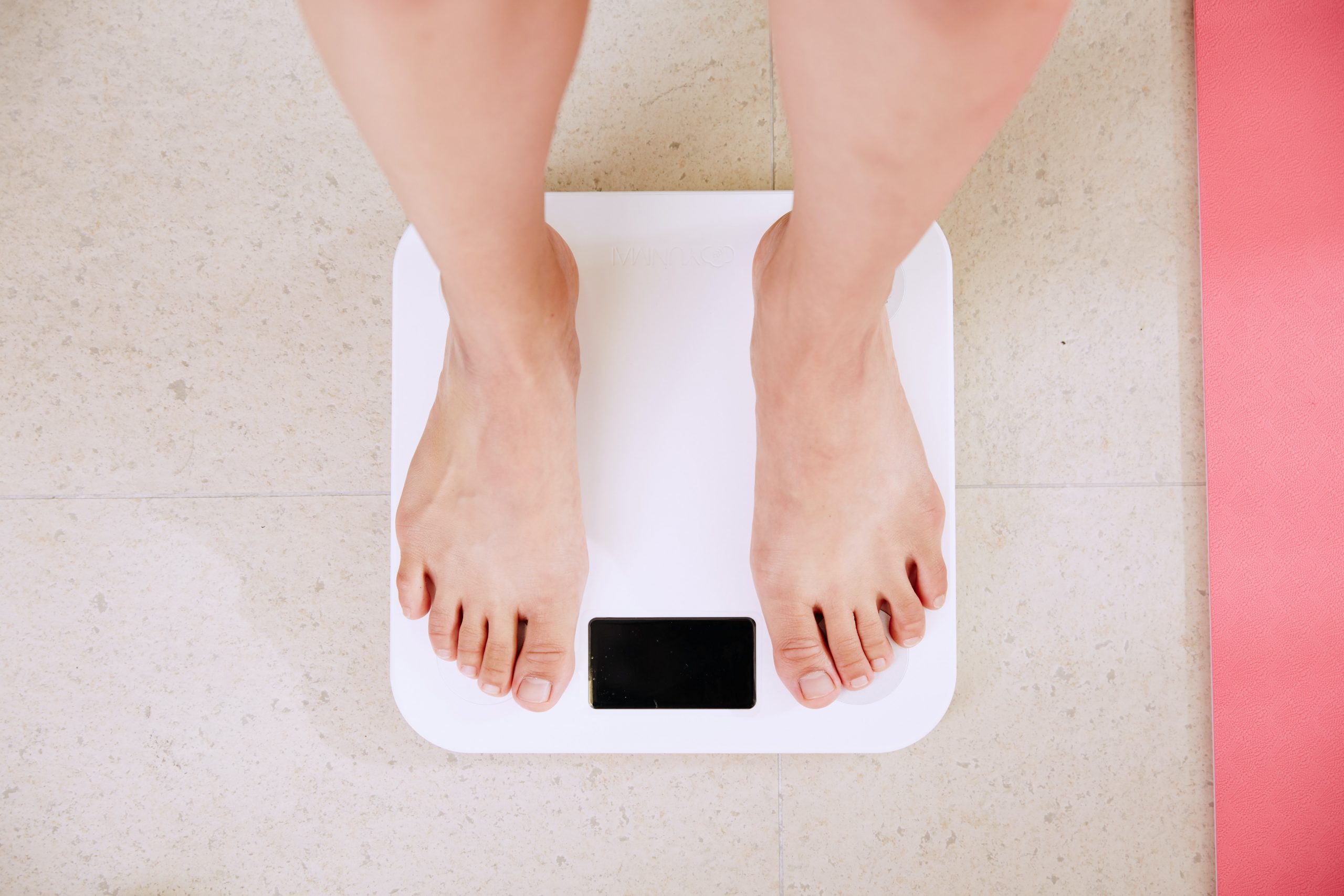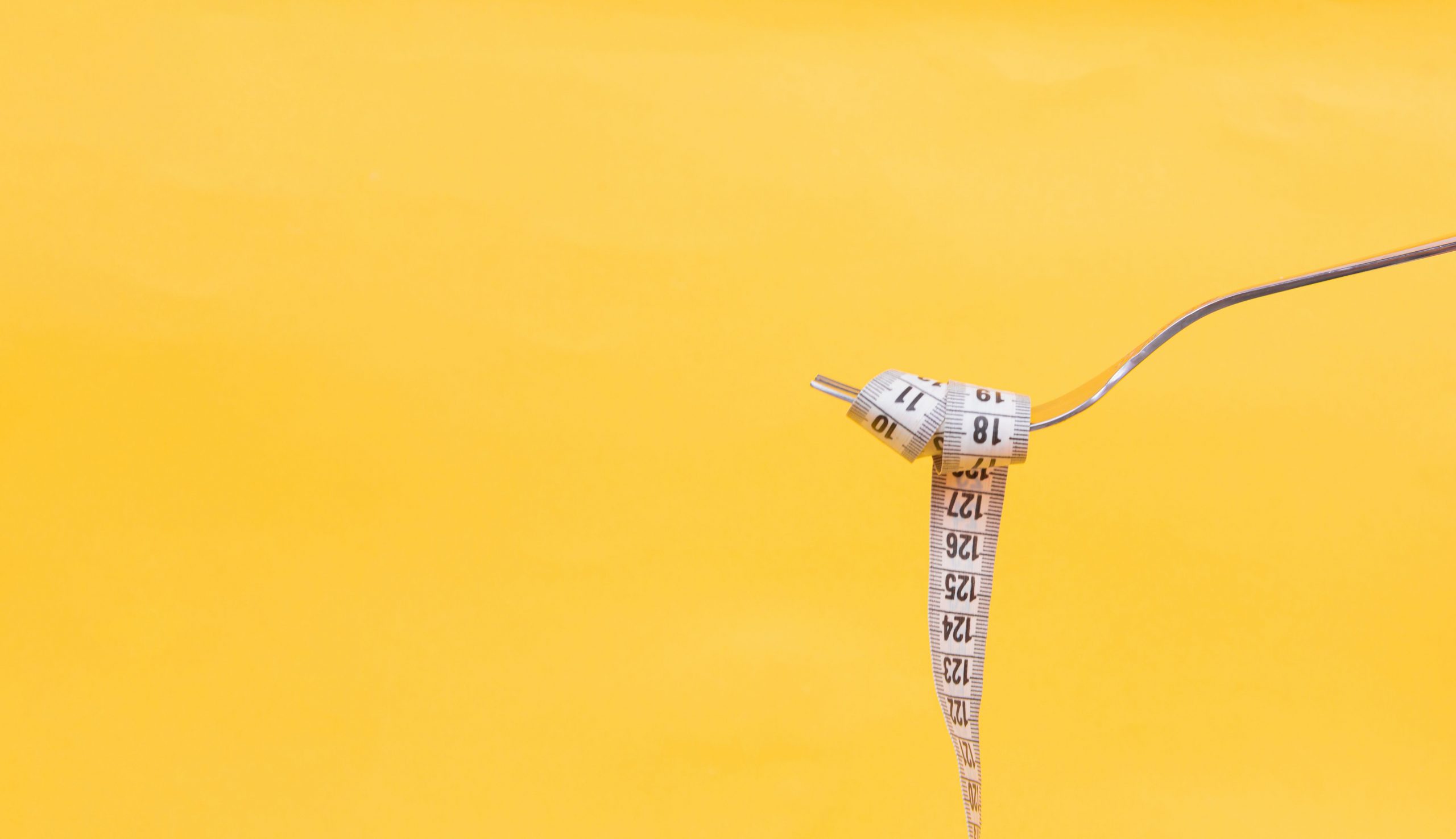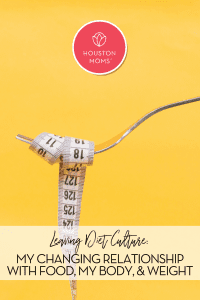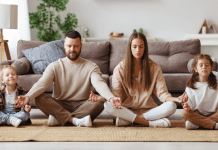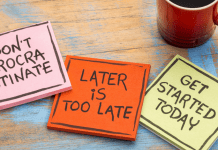I would never say I had an eating disorder. But for years I weighed myself religiously. I meticulously counted calories and logged them into a website. My workouts were intense. It was always cardio of course: trying to burn as many calories as possible. The goal was to be small. To be skinny. To diminish myself at all costs. I’m not telling this story because I think it’s unique. I actually think it’s incredibly common. Diet culture has become so pervasive that it’s turned what we should find disturbing into what we expect: a woman obsessed with her weight.
My Story
There was a time, several years ago, that I actually achieved the kind of smallness I had desired for so long. The numbers on the scale finally showed me what I had always wanted to see. The way I got there was not “balanced” or healthy at all, and I knew it. I had participated in a weight loss challenge with a group of people at my gym. What started innocently enough as limiting carbs, sugar, and dairy, quickly turned obsessive. I felt powerful in my own self-discipline. The positive reinforcement from the scale was intoxicating. I was in control of my health! My weight! And my life! At least, that’s how it felt. Once I was done with the strict three-week challenge and started adding other foods back in, my body told me otherwise.
Physically, I don’t know exactly what was happening. I just know my stomach hurt and I was having diarrhea- every single day. Sometimes multiple times a day. Maybe that’s TMI. But I want to be specific. I was not healthy- but I was getting skinnier.
I started receiving compliments about my body even though by most standards and in all phases of my life, I had already been thin. I’ve always been able to fit in airplane seats and restaurant booths and easily buy clothes right off the rack. I’ve never experienced true anti-fat bias.
“Oh, you look great!” “You look amazing,” people were saying to me. I was happy with the feedback, ecstatic actually. I kept my stomachaches and bathroom issues mostly a secret. Also, surprisingly, I still hated my body- perhaps even more than I had before. When I looked at myself in the mirror, I saw all the same flaws I had seen before. It was still me. I found that even having reached my goal weight, I could still find something to criticize and to hate.
Eventually, and thankfully, my body recovered without intervention. For a while I was upset, beating myself up for not maintaining my weight loss and I briefly considered trying the same restrictive diet again. But something in me had shifted. I knew that I still hadn’t been happy with my body, even at its smallest. My belief that thinness would lead to loving and feeling good about myself had turned out to be a lie.
Like I said before, I know mine isn’t a unique story. It’s a story about the belief that in order to be happy we must constantly analyze and compare our bodies. That we must monitor and restrict our food intake to achieve ultimate thinness, and only then will we be beautiful. This is about diet culture.
Diet Culture: Invasive and Pervasive
My relationship with dieting started when I was a pre-teen. I remember in 5th grade, a girl pointed out that my thighs jiggled while we played red-light-green-light in our bathing suits on the front lawn. Perhaps her comment was merely an observation. But I took it as an accusation; or worse, a condemnation: I was fat.
I grew up in the 90s when every woman cast in an advertisement, television show, or movie was an extremely skinny white woman. I learned to associate fatness with ugliness. Lump this together with my evangelical beliefs that women exist to complement and please men, ugliness and fatness also meant a fate doomed to loneliness and singleness. Ultimately, fatness was perhaps even sinful. Fatness displayed a lack of one of the cherished fruits of the spirit mentioned in the Bible: self-control. It meant you weren’t doing everything you could possibly do to be thin or to become a beautiful and lovely wife. Was I thinking all of that specifically in the 5th grade? No, definitely not. But I did get the message that fat was bad and should be avoided in every way. That of course meant skinny was worshipped and to be achieved at all costs.
Fat-free, carb-free, and sugar-free diets were all the rage at various times during my childhood and young adult years. Most women I know have tried a version of them at some point in their lives: celebrating when they lose a few pounds, berating themselves when they inevitably gain them back. We were always on diets or talking about diets. There are diets masked as Bible studies; point counting; weigh-ins; and accountability groups for diets, always with the aim to reach a very specific goal weight {usually related to a time back in high school or years ago on their wedding day}.
It’s almost like a twisted act of feminine solidarity: we bond over how much we hate ourselves and then we lift one another up. “No, you look great!” “You’re not as fat as me!” In this way, we keep circling but never land. We keep talking around the ways this world oppresses us and tells us we’re only as valuable as we look but we never rise above any of it or stop the endless cycle.
I didn’t come to these realizations about diet culture on my own. Thankfully there seems to have been a cultural shift happening recently in part because of one of the ways I most love to engage with the world and learn: the internet. There are so many influencers and writers out there right now doing the work of body positivity and body acceptance. I have purposely filled my Podcast and Instagram feeds with their voices. We are no longer at the mercy of capitalist gatekeepers to define beauty for us by whomever they decide to put on the cover of a magazine. We no longer have to believe the lie that in order to be beautiful we must be thin and that in order to be thin we must purchase a program, book, tea, or wrap. The Internet gives platforms to so many that were previously kept out of spaces of modeling, fashion, and beauty. So I purposefully follow women {and men!} who are out there doing the work of sharing and loving their whole selves. I’ve also been uncovering my own anti-fat bias and unlearning the faulty information about “wellness” and health that we were all given that led to this bias.
The truth is, not all fat people are unhealthy; not all skinny people are healthy. I’m just scratching the surface here, but you actually can’t tell how healthy a person is just by looking at them or by their BMI.
Here are a few mantras I’m leaning into:
Bodies change over time.
This is normal and healthy and good. My body at 38 is not the same as it was at 25. It’s not supposed to be! The rest of me certainly isn’t the same either! My parenting style, my faith, my understanding, and life experiences- so much has grown and evolved, why shouldn’t I expect my body to do the same? Similarly, my body at 55 will not be the same it is at 38 and I will not hold myself to that expectation.
Food is not good or bad.
Sure, some foods are more nutritious than others. But to label them “good” or “bad” leads to the internalized messaging that we are either “good” or “bad” when we eat them. We’ve all heard or used the phrase, “I’ve been so bad lately” referring to what we’ve eaten. This leads to a cycle of guilt, restriction, and then bingeing. This is essentially the heart of diet culture. The truth is you haven’t been “bad” and there’s no need for guilt over eating dessert. Maybe you had some cake. Maybe you had so much cake your stomach hurts. But that wasn’t a moral failing.
Clothes are made for bodies, not the other way around.
If they aren’t working anymore get rid of them. If they don’t fit, it’s a problem with the clothes, not you.
What would it mean if you could believe you are beautiful right now?
What if you wore the shorts because it’s freakin’ hot outside even if it means your cellulite will show? What if you wore the swimsuit because the color looks great with your skin tone and you deserve to be happy and live beautifully no matter what size you are? What would it mean for our children to hear that we actually love our bodies the way they are?
What if you went ahead and got the haircut you really wanted, or bought the trendy jeans you’ve been eyeing? Started the business, took the class, or applied for the job? You don’t have to lose weight before you can do those things. Thinness doesn’t make you more deserving of anything. You already deserve the best.
We are made for so much more than an endless cycle of dieting and trying to attain societal standards of beauty. We have so much more to offer the world. Leaving diet culture is a rebellious and revolutionary act. Choosing to love our bodies laughs in the face of societal and patriarchal norms that tell us we either must hide our bodies in shame or that we can only be proud of our bodies if they meet very specific and unrealistic standards of beauty. Well, I don’t want to play by those rules anymore. We are beautiful, just as we are.








